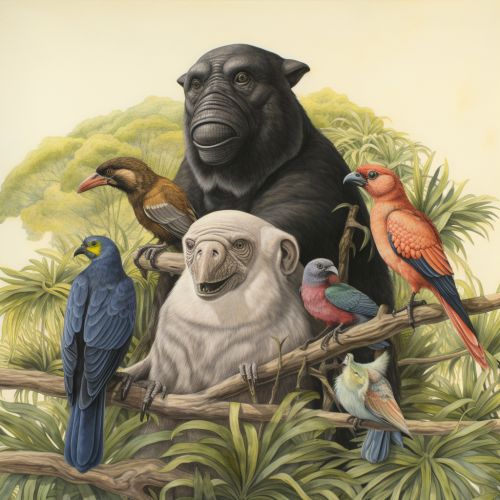Animal Intelligence
Introduction
Animal intelligence, also known as animal cognition, involves the mental capabilities of non-human animals, which manifest in various ways such as problem-solving, memory, social interaction, and the ability to acquire knowledge through experience. This field of study is primarily concerned with understanding the processes and mechanisms that underlie these abilities, and how they compare to human intelligence.


Understanding Animal Intelligence
Animal intelligence is not a single, unified characteristic, but rather a collection of various cognitive abilities that differ greatly among species. These abilities can be broadly categorized into several domains, including learning and problem-solving, memory, social cognition, and communication.
Learning and Problem-Solving
Learning and problem-solving are key aspects of animal intelligence. Many animals are capable of learning from their experiences and applying this knowledge to solve problems in their environment. For example, crows have been observed using tools to obtain food, an ability that requires both learning and problem-solving skills.


Memory
Memory is another crucial component of animal intelligence. Animals use their memory to remember locations of food sources, recognize individuals, and learn from past experiences. For instance, elephants are known for their exceptional memory, which allows them to remember individuals and locations over many years.


Social Cognition
Social cognition refers to the ability of animals to understand and respond to the social cues of others. This ability is particularly prominent in social animals like dolphins and primates, who rely on complex social interactions for survival.


Communication
Communication is a fundamental aspect of animal intelligence. Many animals, such as birds and whales, use complex vocalizations to communicate with each other. Others, like bees, use sophisticated dance routines to convey information about food sources to their peers.


Measuring Animal Intelligence
Measuring animal intelligence is a complex task that requires careful consideration of the animal's natural behaviors and environment. Various methods have been developed to assess different aspects of animal cognition, including observational studies, controlled experiments, and comparative studies.
Implications of Animal Intelligence
The study of animal intelligence has profound implications for various fields, including ethology, psychology, and conservation biology. Understanding the cognitive abilities of animals can help us improve animal welfare, conserve endangered species, and even gain insights into human cognition.
